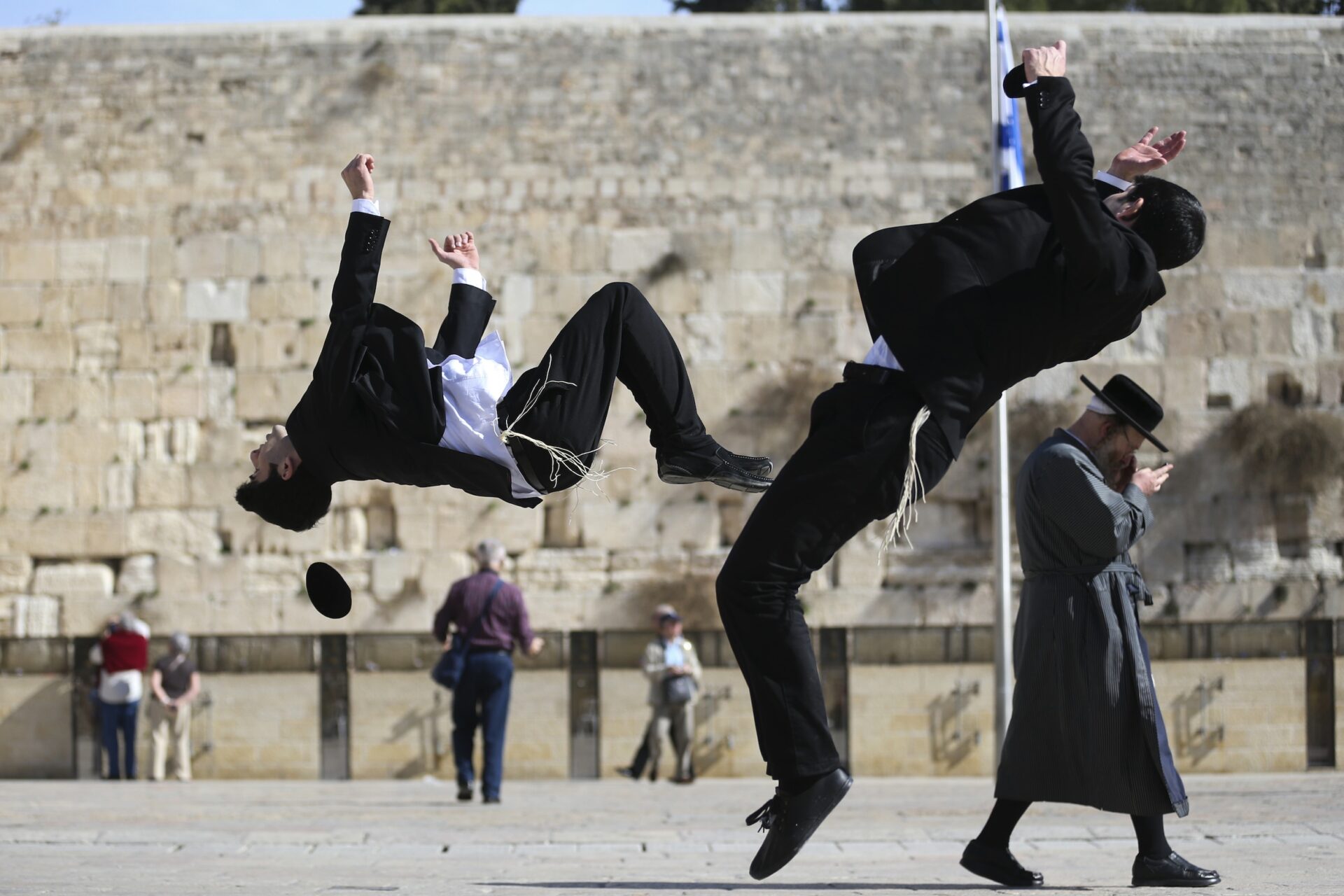
THE GIFT OF HOREB: ORTHODOXY AS AN ADAPTATION
Jewish radicalism, especially in America, is indeed a troubling feature. It is a statistical fact: About 80% of America’s Jews have voted for Joe Biden. In addition, as Pew’s “Portrait of American Jews” informs us, 70% of Jews define themselves as Democrats and 54% of Jews appear to support “bigger government,” and 49% define themselves as “liberals” (by comparison to only 21% of the general population).
More so, Jewish visibility amongst the vanguards of the Left – the hordes denouncing America, accusing it of “systemic” nonsense, and inviting the Third-World to come in – is obvious. Indeed, Jewish organizations themselves tilt so heavily leftwards (using the criteria of BLM embracement and support for mass immigration) that any attempt to deny Jewish leftist radicalism in America is simply a waste of breath.
There is, however, as I have already noted, an exception: Orthodox Jews. In America, as much as elsewhere, Orthodox Jews are emblems of ancestral piety and conservatism. They are exemplary Horatii, ever mindful of “the ashes of their fathers and the temples of their gods.” Between 74-83% of Orthodox Jews in America have voted for Trump, vs. only 20% of secular/Reform Jews.
It’s worth noting that adherence to religion is not by itself a shield against radicalism. Just pay a visit to Afghanistan or the suburbs of Paris. Or travel in time to Europe of the 16th and 17th centuries. Also secularism, on its own, is not necessarily an inducer of radicalism. Switzerland, Austria, and many other stable and relatively conservative European societies are not particularly religious.
What I mean is that we cannot excuse the radical tendencies of secular Jews, and the non-radicalism of religious Jews, as just a normal case of the politics of secularism and religion. Something unique is in place.
My own hypothesis is that Orthodox Judaism is a form of adaptation. It is a uniquely strict and all-encompassing code: In addition to regulating one’s rites of passage, as all religions do (birth, coming of age, marriage, and death), it also firmly regulates one’s food intake, choice of garment, pastime, prayer cycle, holidays, and breaks. Take it as a psychological and cultural adaptation – its function is to serve as a lid, or a force field, containing the otherwise restless Jewish soul.
Meaning, even if Judaism had not existed, Jews would have had to invent it, to prevent their sons and daughters from becoming a deranged horde of Saul Alinskys and Emma Goldmans. When the force field is removed, however, the Jewish soul, so adapted to the containment of Orthodoxy, flees and quickly finds all sorts of -isms to keep it occupied. Wokeism, communism, socialism, environmentalism, you name it.
One -ism in which the Jewish soul, even without religion, seems to have found its peace is Zionism. By and large Israeli Jews, religious or otherwise, do not display the radical tendencies of secular American Jews. The containment of country and ancestors, defense and struggle, seems to be as effective as that of Orthodoxy.
And so the radical Jewish soul faces two choices of return: A return to the faith of its ancestors, or to their land. Teshuva or Aliyah.
P.S. (March, 2023) Nah, Zionism doesn’t seem to be effective against radicalism.
Follow us on Twitter!
And sign up for updates here!